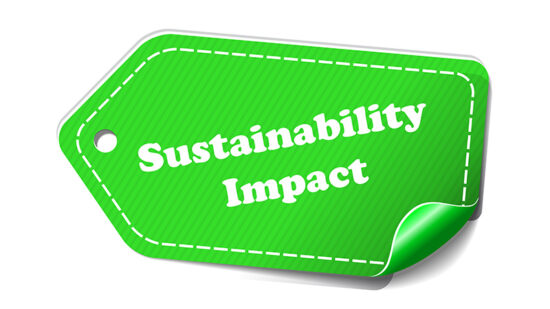The UN Intergovernmental Panel on Climate Change revealed that the planet’s temperature has risen just over a degree in the past decade – raising concerns as to whether enough is being done to slow down climate change.
The near 4,000 page report made it clear that we are running out of time in the fight against climate change, and professionals across the investment industry were quick to point out that more must be done.
Ben McEwen, climate change analyst at Sarasin & Partners, says: “We are deep in a climate crisis. Our collective failure to materially abate the emission of greenhouse gases now sees the world heating faster than previous forecasts, with the evidence before our eyes.
“As a consequence, limiting warming to 1.5C will be beyond our grasp, unless there are instant, strong, and large-scale efforts to reduce emissions to net zero by 2050. As the report states, ‘the climate we experience in the future depends on our decisions now’.”
‘The world is on fire’
Hector McNeil, co-CEO of HANetf, agrees that action is needed by the industry now.
“The world is on fire and everybody needs to do more to tackle climate change,” he says. “The investment industry in particular needs to do much more, and at the moment there is too much ‘hot air’ when it comes to what the industry is doing in relation to tackling climate change, but not enough action.”
According to the UN’s report, “the world will hit one-and-a-half degrees warming much earlier than expected, possibly the middle of 2034” and that more extreme weather such as heatwaves, droughts, and flooding will be increasingly likely within the next decade.
“Across the world, we are seeing the devastating effects of global warming. This summer alone, heatwaves and record-breaking droughts have caused raging wildfires, destroyed livelihoods and caused loss of life,” says Gemma Woodward, director of responsible investment at Quilter Cheviot.
“New evidence suggests that if we bring emissions to net zero and keep them there, warming will stabilise. This data must kick-start a new era where climate considerations trump all else.
“For investors, all roads continue to lead towards net zero by 2050. This latest data should act as a stark reminder of why investors must look to the future and consider sectors such as renewable energy infrastructure to support the global ambition.”
See also: Deirdre Cooper: ‘The decarbonisation journey is literally just starting’
Net zero initiative not good enough
Last month, Portfolio Adviser reported that despite 128 investment firms signing up to the net zero pledge, the targets and measurement standards needed to meet this commitment are yet to be put in place.
At the same time, an independent report published by the Climate Change Committee found the UK is struggling to keep up with the impacts of climate change.
These fears were compounded by prime minister Boris Johnson, who following the publication of the UN’s report, said: “We know what must be done to limit global warming – consign coal to history and shift to clean energy sources, protect nature and provide climate finance for countries on the frontline.”
His comments come despite the UK government’s plans for a potential coking coal mine in Cumbria and the tapping of a new oil field near Shetland.
See also: Asset managers’ net zero pledge not enough to combat climate risks
Asset managers must push companies to adopt science-based emissions targets
“We have the climate solution tools available to us whether it be the transition to renewable energy, adoption of electric vehicles, improving building efficiency, increasing levels of recycling and the incorporation of greener technology for industrial processes,” says Randeep Somel, manager of the M&G Climate Solutions Fund.
“As investors, we need to continue pushing companies to adopt science-based targets for their own emissions. We need to encourage highly pollutive companies to transition their business models to more sustainable paths, and we also need to channel capital to those companies that are researching and providing the climate solution tools that we all need to adopt.”
Retail investors, too, are increasingly holding companies to account, with more than half planning to devote more of their investments to those at the forefront of the ‘green revolution’, covering industries such as electric vehicles and solar panels.
The research from industrial and precious metals ETC provider, GPF, added that 51% of retail investors agree that the drive for a net zero economy and the focus on renewable energy and electric vehicles represents a good investment opportunity.
“The transition to a net zero economy is creating a range of investment opportunities, and investing in metals that play a pivotal role in this transition is one that many investors are starting to recognise,” says Alexander Stoyanov, CEO of GPF.







